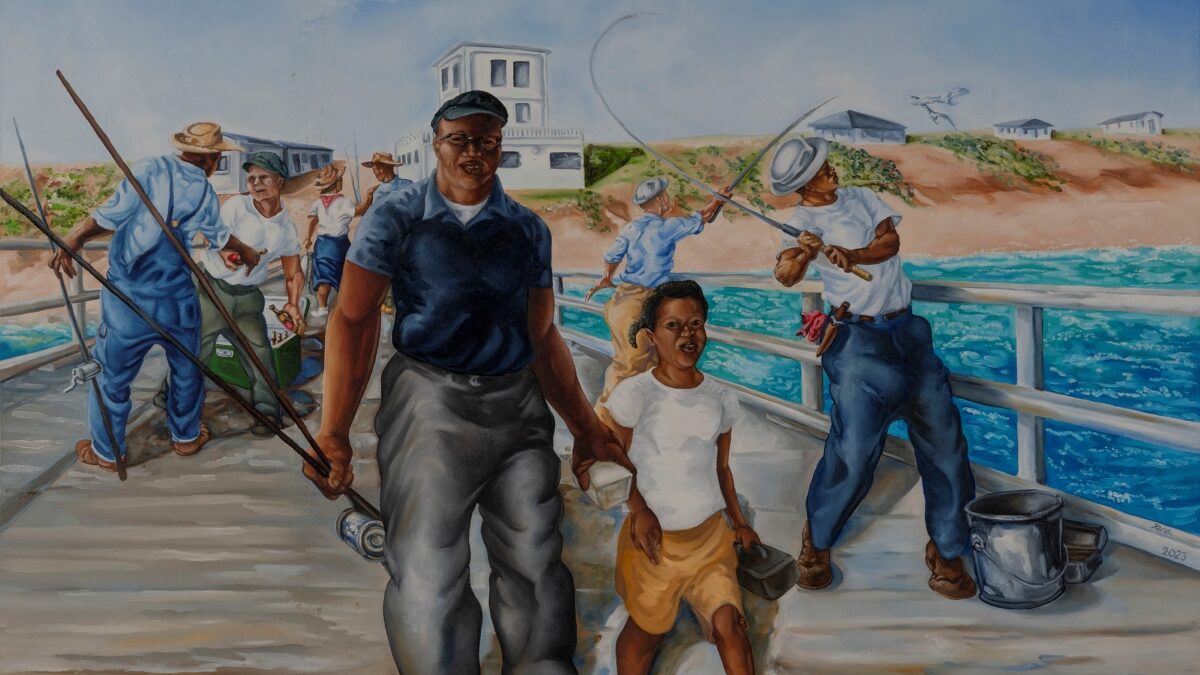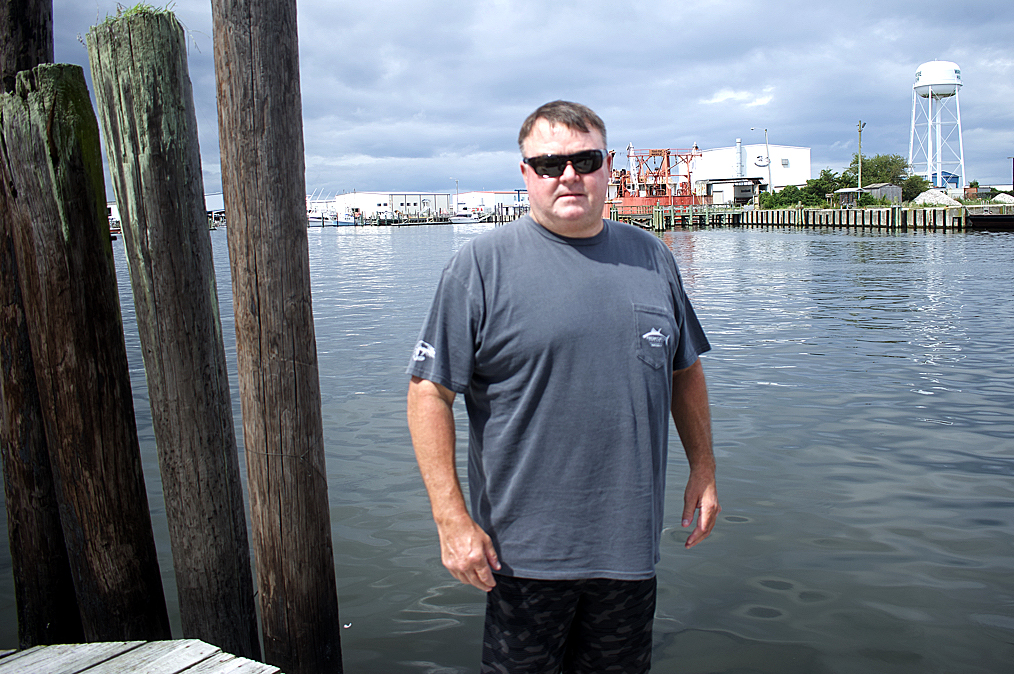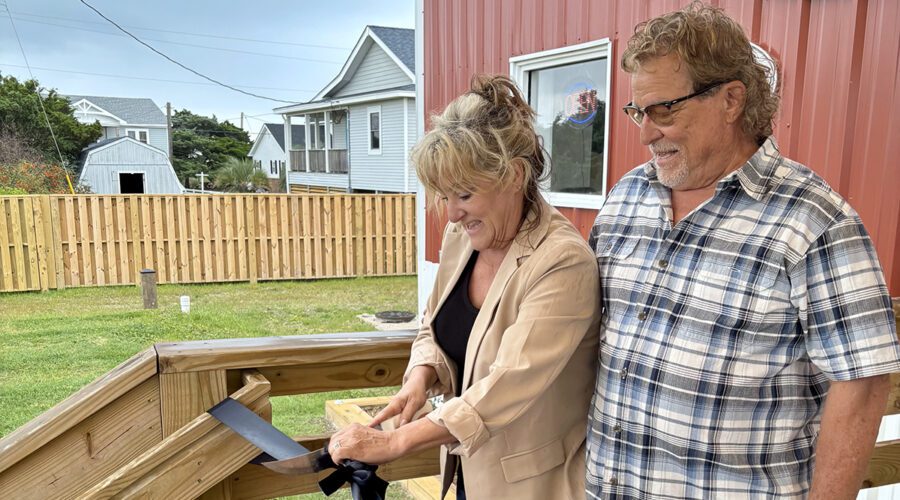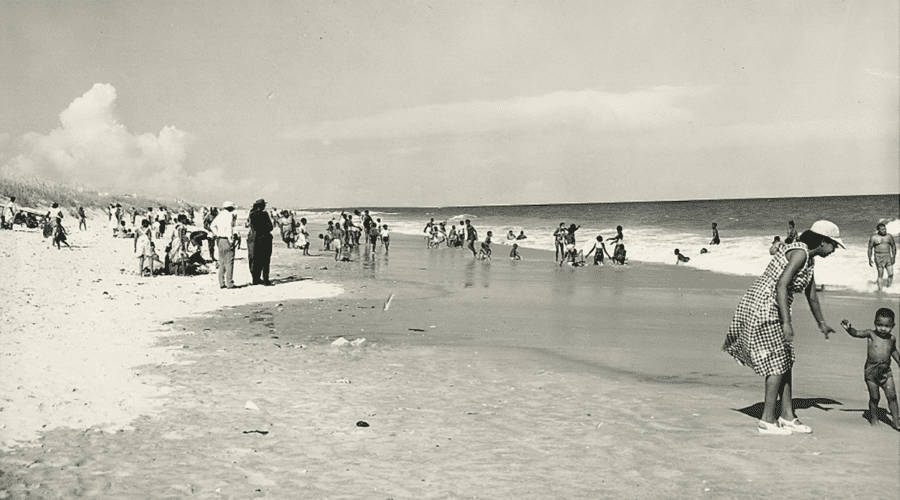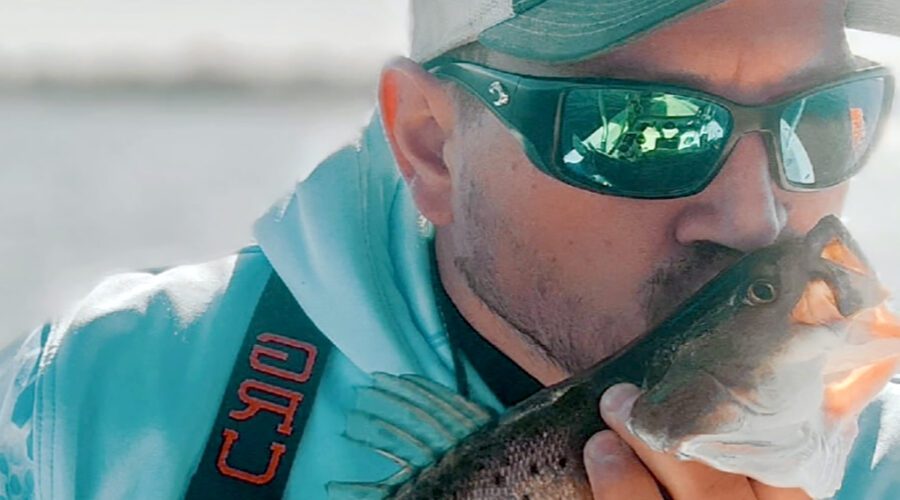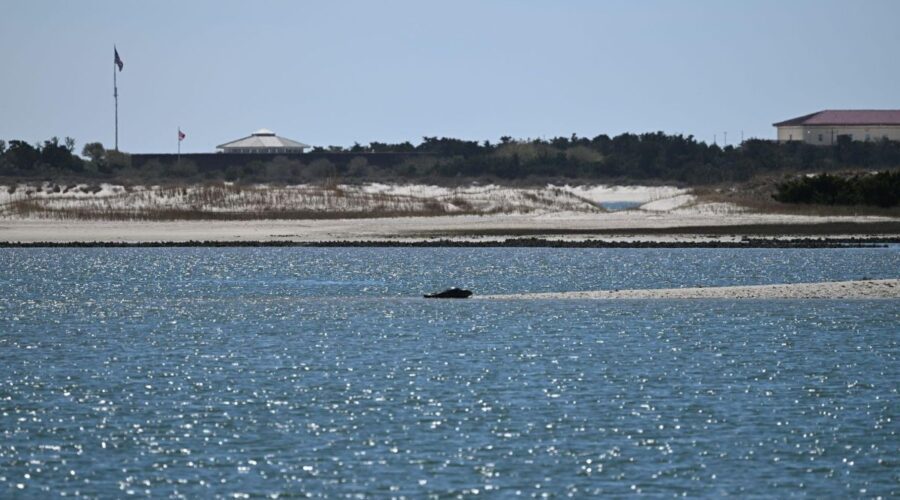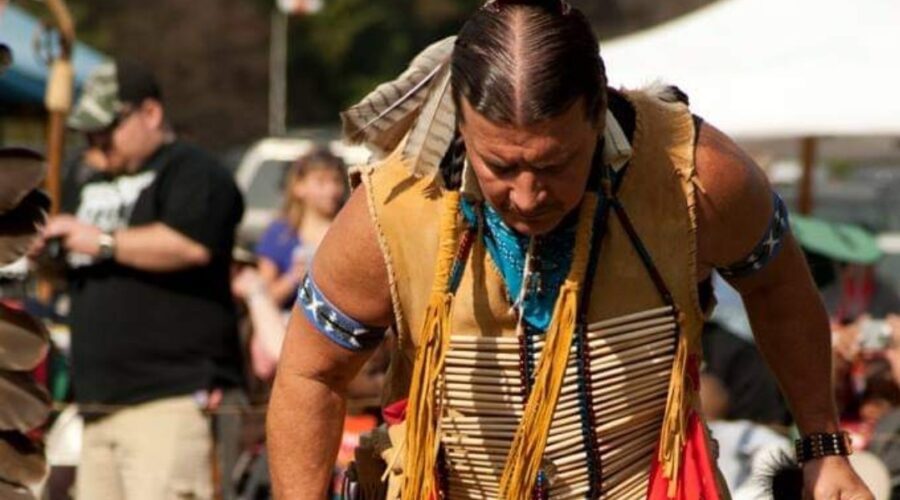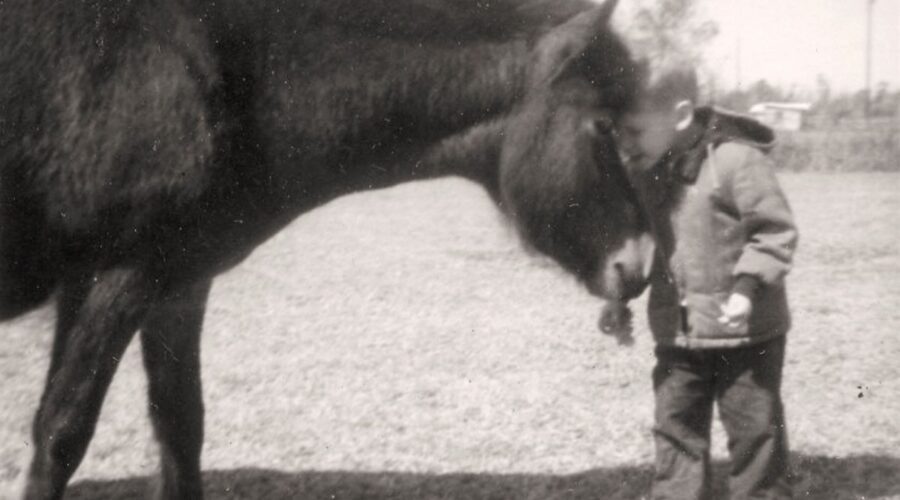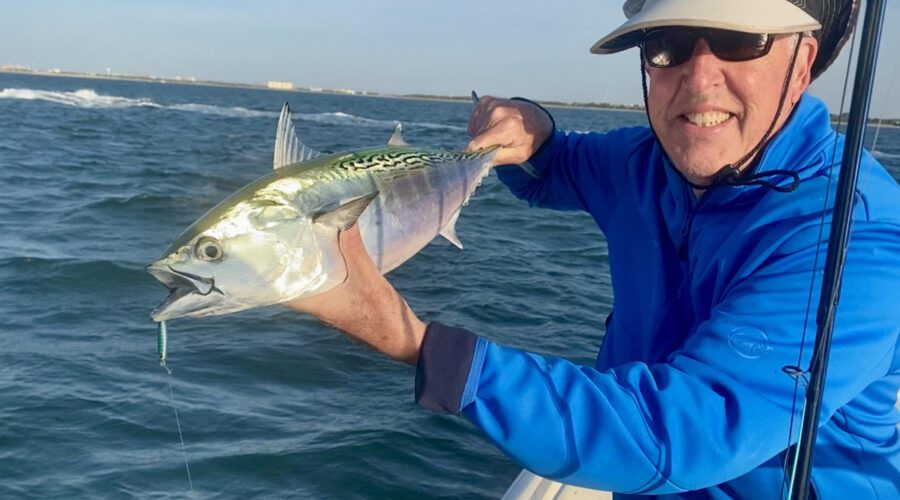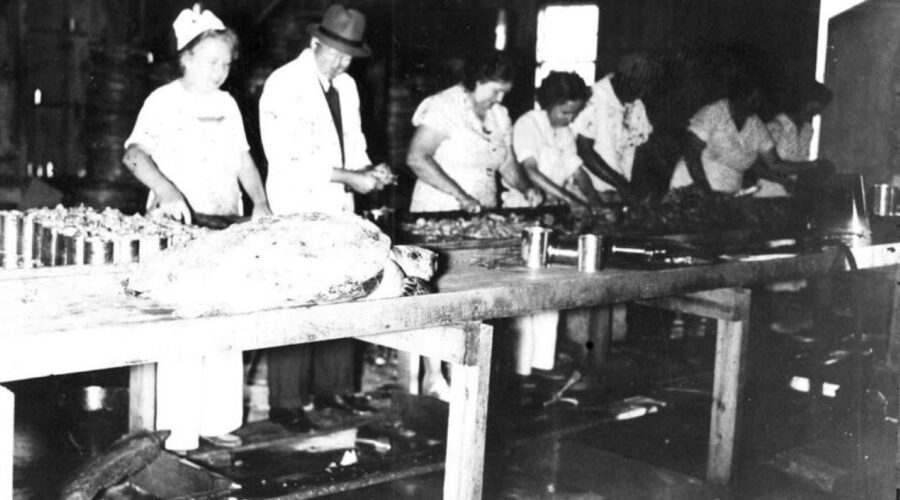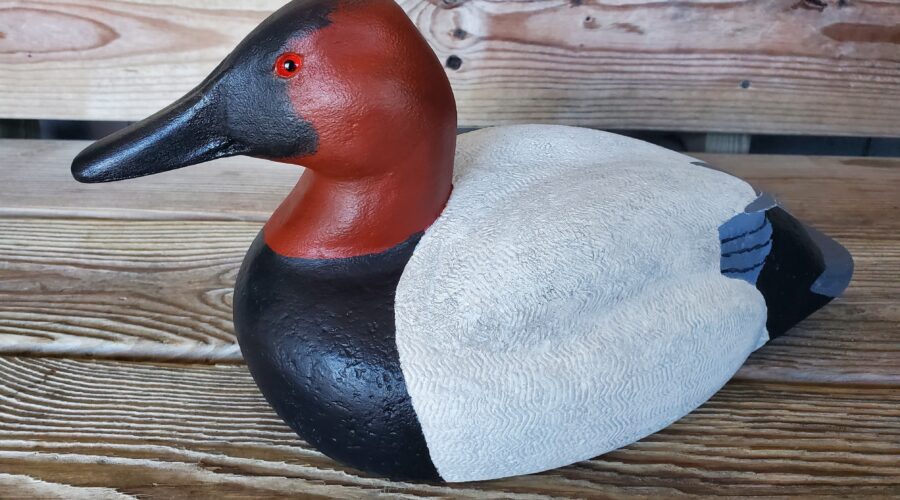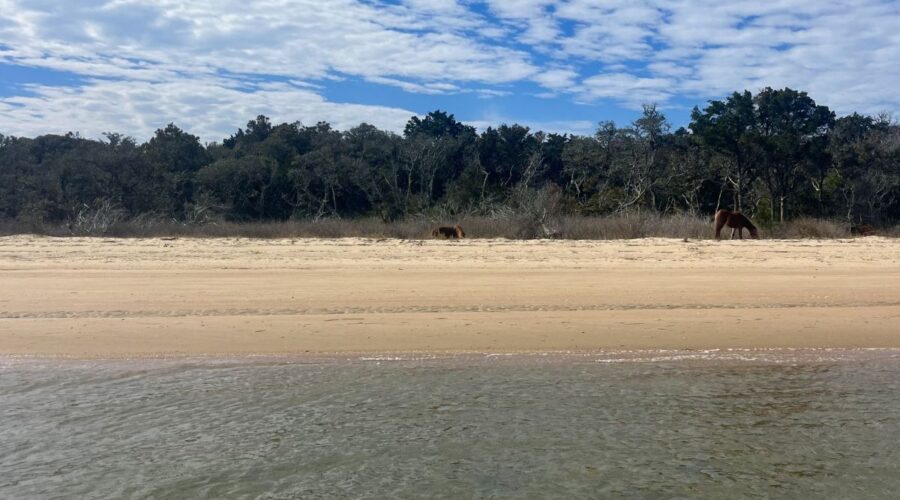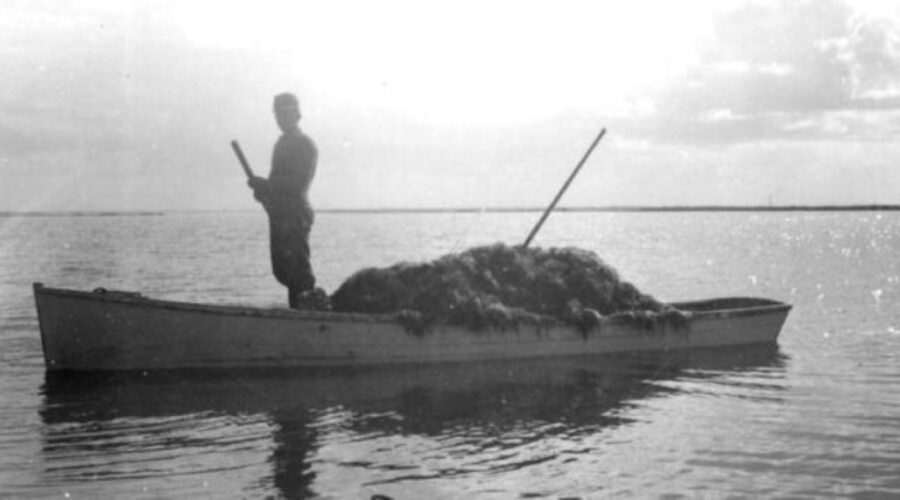An exhibit opening this weekend in Jacksonville features paintings by artist Rik Freeman of Washington, D.C., that depict stories of African American beach communities during the Jim Crow era.
Our Coast
Dewey Hemilright advocates for US commercial fishing fleet
Forceful and outspoken, this passionate advocate for the commercial fishing industry has spent 30 years in the business and served in fisheries management.
Four-day fête honors Jockey’s Ridge State Park’s 50th year
Preserved from development by Carolista Baum, a mother of young children, who blocked a bulldozer, declared a National Natural Landmark and made a state park 50 years ago, an occasion recently celebrated by officials and throngs of visitors.
Longtime Outer Banks fish house opens doors to new facility
Jeffrey’s Seafood has a new facility in Hatteras Village that houses equipment to process fresh seafood, a retail store and plans are underway for a small restaurant that will feature local catch.
Ocean City’s culinary traditions a beacon in turbulent past
Ocean City’s two community cookbooks are filled with recipes from families that spent their summers in the beach neighborhood on Topsail Island where Black residents could own property in the 1950s.
Coastal Cohorts cast off for 40th season with Carson tribute
Don Dixon, Jim Wann and Bland Simpson, collectively known as the Coastal Cohorts, are bringing “King Mackerel and the Blues Are Running” back for its 40th year and debuting their musical homage to Rachel Carson.
When fishing, Justin Manners heeds Ben Franklin’s advice
“Failing to plan is planning to fail,” goes the old adage and it is angler, charter captain, HVAC tech and Richlands resident Justin Manners’ key to success on the water.
Our Coast: ‘Cast on shore, at a place called Ocracock’
On a recent trip to New Hampshire, historian David Cecelski pored over historic accounts and survivors’ sworn affidavits pertaining to shipwrecks, storm damage, insurance claims and the North Carolina coast.
Harbor seal spotted in Beaufort: anomaly or harbinger?
The harbor seal spotted this spring swimming in Beaufort’s Taylors Creek has inspired a team of researchers to reconstruct the timeline of this species in North Carolina.
Secotan Alliance event ‘to bring Wingina out of the shadows’
The program, “In the Spirit of Wingina 2: Our Women, Our Words, Our Water,” set for May 30-31 in Nags Head and Manteo will highlight Chief Wingina’s Secotan Alliance, and general Indigenous environmental history, with a concentration on the roles of women.
Historian David Cecelski: Carolina coast still worth the fight
The recent shackling of the Environmental Protection Agency “foreshadows the breathtaking descent back into the worst days of our coastal past, when our estuaries, our beaches, our fisheries and the sources of our drinking water were a free-for-all, open to plunder, pillaging and poisoning.”
Fishing hooked newspaperman Rip Woodin far from coast
Rocky Mount Telegram Publisher Rip Woodin, who spends free time at his Atlantic Beach getaway, didn’t grow up fishing, but a gift of a fly rod from his boss in Wyoming decades ago lit the passion.
‘Working Lives’: Canning sea turtles, Marshallberg, NC, 1938
When the cannery that opened in Marshallberg, a little village in Down East Carteret County, in 1937 ran out of oysters, tomatoes or other crops to can, they turned to canning sea turtles, writes historian David Cecelski.
Ocracoke Carvers Guild readies for 7th waterfowl festival
The celebration of Ocracoke’s waterfowl carving heritage is scheduled for April 11-12 in the Ocracoke School gym.
Documentary film project to focus on Down East resilience
Two University of North Carolina Wilmington professors and their students are creating a documentary about the 13 Carteret County communities in partnership with the Down East Resilience Network.
When fishermen harvested seaweed: Beaufort’s agar industry
The curiosity that sparked when historian David Cecelski came across photos taken in 1944 of fishermen harvesting seaweed near Beaufort inspired a “bit of a deep dive” into topics he never imagined studying: the history of agar, ecology of seaweed, the wartime crisis that led to seaweed harvesting and the construction of the Beaufort agar factory.

